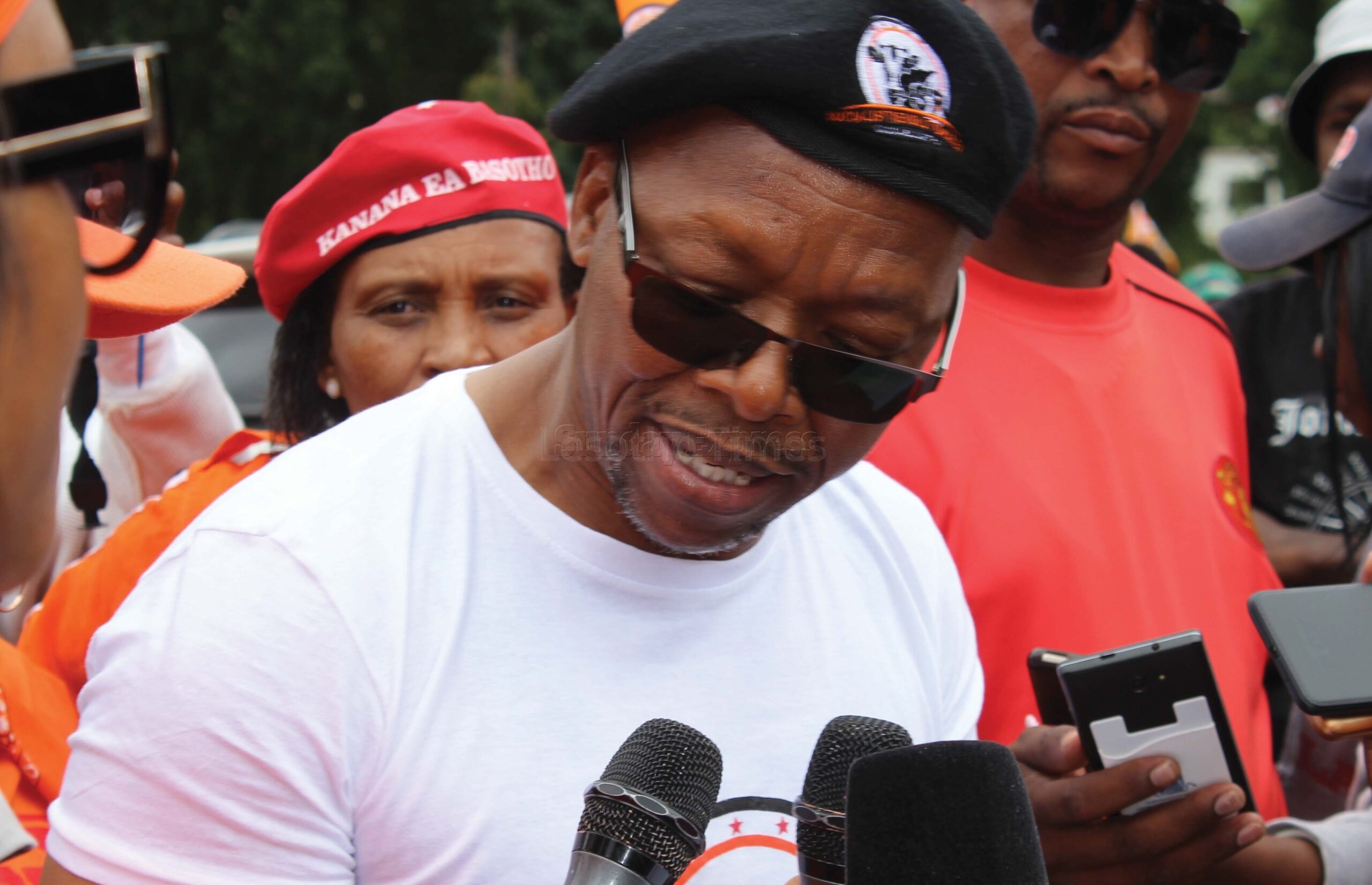Moorosi Tsiane
THE Socialist Revolutionaries (SR) is not backing down on its fight to retain its proportional representation (PR) seat which it argues the party leader, Teboho Mojapela, erroneously allocated to Chabasile Mabusela of Movement for Economic Change (MEC).
The SR has petitioned the High Court, sitting as a Court of Disputed Returns, to overturn its own leader’s decision which it claims Mr Mojapela made unilaterally without consulting the national executive committee (NEC).
This after the Court of Appeal last Friday upheld Justice Molefi Makara’s High Court ruling of 22 May 2023 that the High Court, assuming its original jurisdiction, lacked powers to preside over the matter. Hence the SR has now relaunched the matter before the Court of Disputed Returns.
The PR seat was left vacant by the resignation of former SR deputy leader, Mamarame Matela, from parliament on 20 October 2023.
Mr Mabusela, who was next in the SR’s PR list after Ms Matela, assumed the latter’s seat. This due to a deal the MEC and SR made ahead of the 7 October 2022 general elections.
Under that agreement, MEC members in the Matelile constituency were asked to vote for the SR’s ‘Mathako Theresia Pakela. In return, the SR would allocate its third PR seat to Mr Mabusela.
This was because the MEC candidate in the Matelile constituency, Sello Tšukulu, had been disqualified by the Independent Electoral Commission (IEC) as he was still the Development Planning principal secretary (PS) when he was nominated to represent MEC in the October 2022 general elections. Civil servants are barred from contesting for political positions while in active state employment. There was no time to nominate a replacement.
The MEC believed at the time it would easily win the seat because it adjoins its leader Selibe Mochoboroane’s Thabana Morena constituency, in his stronghold of Mafeteng. Mr Mochoboroane has consecutively won his seat and it was believed his popularity extended into neighbouring Matelile. In exchange of the MEC supporting the SR’s candidate, Ms Pakela, to win the Matelile constituency, the SR would register the MEC’s Mabusela on its PR list as compensation for the support.
However, Ms Pakela did not win the constituency as she only garnered 1074 votes while the Democratic Congress (DC)’s Maphathe Maimane won the constituency with 1886 votes.
Mr Mabusela had already been put on the SR’s PR list gazetted by the IEC as the latter’s number three candidate. That meant he had to replace Ms Matela as the SR’s next PR MP even though he is an MEC member. Mr Mojapela had won his own Motete constituency and Ms Matela – as deputy leader – had been second on the party’s list, meaning the two automatically went into parliament after the party got two seats (one constituency and one PR).
However, the pre-election relationship between the SR and MEC had taken a sour turn soon after the polls when Mr Mochoboroane joined Prime Minister Sam Matekane’s coalition and became Minister of Health while Mr Mojapela remained in the opposition side.
And now the SR argues that its chairperson, Mapali Molula, should assume the seat instead of Mr Mabusela.
While they argue that Messrs Mochoboroane and Mojapela’s agreement was null and void, they also claim that the assumption of PR seat by a male (Mabusela) defies the parliament’s Zebra Model which dictates that after a male (Mojapela) there should be a female assuming a PR seat.
Speaker on the National Assembly Tlohang Sekhamane, Mr Mabusela, MEC, Mr Mochoboroane, Mr Mojapela, the IEC and Attorney General Rapelang Motsieloa are first to seventh respondents respectively in the application.
“The arrangement between the two leaders is mere talk over tea that has no legal obligations. It was done without consultation, knowledge and blessing of the SR national executive committee. Consequently, it is not there in law,” Ms Molula states in her founding affidavit accompanying the SR’s application in which it now seeks repudiation of the agreement.
“Each political party has a duty to promote at least identifiable fundamental rights in particular women empowerment. Section 30 (1) of the National Assembly Electoral Act 2011 imposes a positive duty on every political party to promote the female gender.
“Now, even assuming that there was any agreement between MEC and SR leaders, such arrangement would be invalid as it promoted 100 percent male representation contrary to the Zebra Model which provides for gender parity inside parliament.
“Per this model there must be 50 percent female representation and 50 percent male representation inside parliament in order to attain non-discrimination and gender equality provided for in sections 18 and 19 of the Constitution 1993.This would realise a constitutional project aimed at attaining democracy, equality and abolition of all form of discriminations as provided for in sections 1, 18 (4) (e), 20 read with 25 of the Constitution,” Ms Molula’s affidavit reads.

